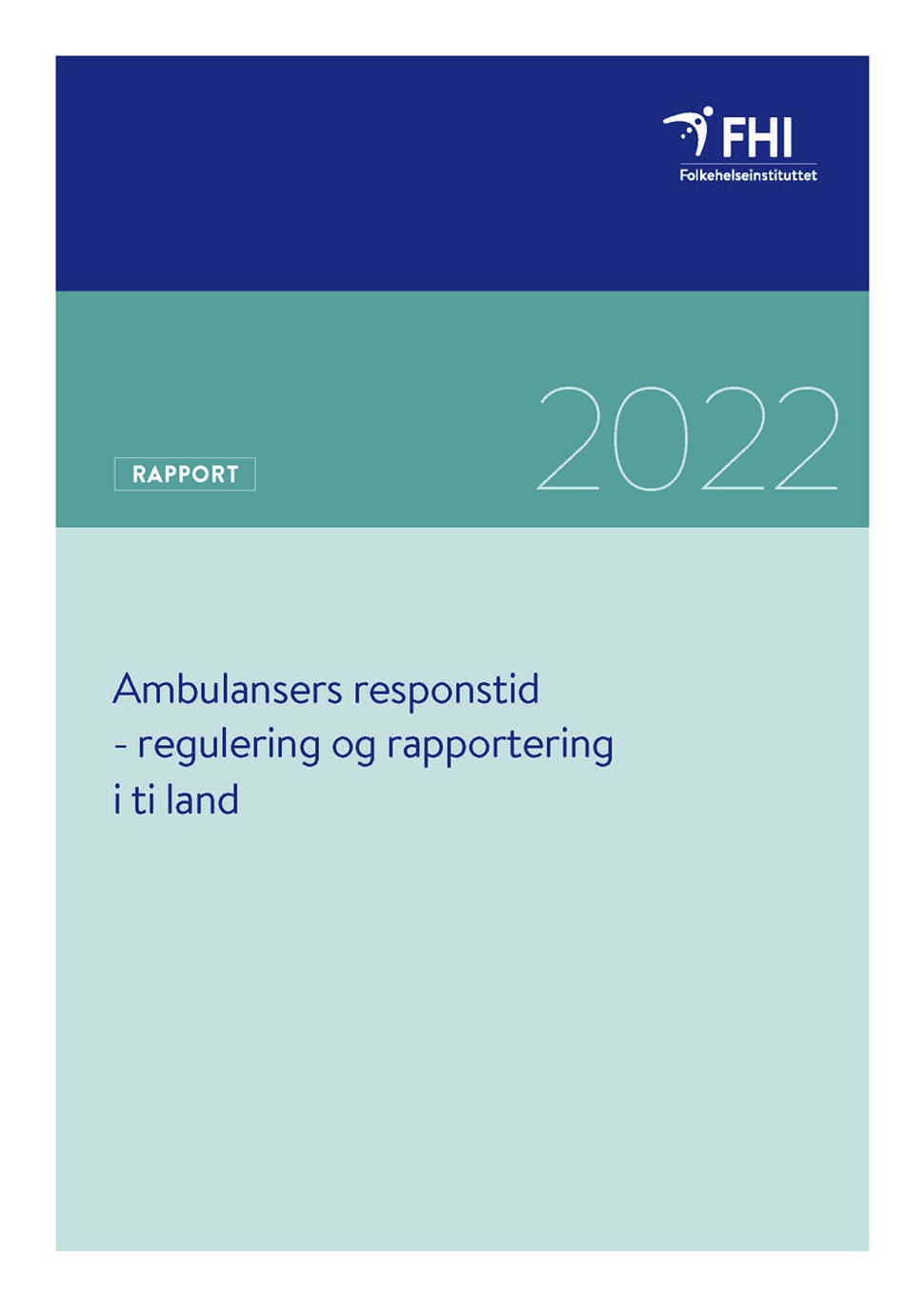The Norwegian Institute of Public Health has studied how ambulance services are managed and whether response times are reported in other countries. The mission is limited to examining other Nordic countries, as well as Australia, Canada, England, Italy, the Netherlands, New Zealand and the United States.
Main message
Rapid access to quality health care in the event of acute illness or injury is important for people’s safety. Short response times for ambulance services are also considered an effective strategy to reduce the global burden of disease. In connection with the Storting asking the government to regulate the response times of ambulance services, we have collected information on the regulation and reporting of ambulance response times in ten countries outside Norway.
It is difficult to find information evaluating experiences with the regulation/regulation of ambulance response times in different countries.
There are large variations in the degree of regulation between the ten countries. Six of the countries have regulated ambulance response times. In three countries, responding to emergency calls is also included in the ambulance response time. Almost all countries have national reports on response times that are publicly published.
The need for knowledge about emergency medical services is great, especially when it comes to aspects such as the interaction between sectors and between prehospital services and health services in general.
Summary
This report mapped the regulation and measurement of response times in ten countries. The work is a mission of the Norwegian Directorate of Health and is part of an investigation into the regulation of ambulance response times. The aim is primarily to identify countries that have regulated response times for ambulance service and to determine whether the regulation included other parts of pre-hospital emergency medical services. The reasons for the introduction and experiences in adopting regulations should also be included.
We collected and compiled information on the regulation and reporting of ambulance response times in ten countries. The main findings are summarized in the table below. We found that six of the ten countries regulated ambulance response times in different ways, three of the countries chose to include the time spent by alarm centers reporting ambulance response times. A central question is how important response time is for treatment/survival. The mission will receive a response in a separate report including analyzes of Norwegian health records.
|
National regulation of the response time |
Definition of response time for national reports |
Reporting objectives for urgent missions |
|
|
Norway |
No |
Calls to the AMK central until an ambulance arrives |
Median time at municipal level 90th percentile response time regionally |
|
Denmark |
Yes, emergency plan with deadlines is determined at the regional level |
From AMK gives missions until an ambulance arrives |
Average, Share within 10 minutes and 15 minutes respectively |
|
Finland |
Yes, the emergency plan with risk and time requirements is determined regionally |
NOW |
NOW |
|
Sweden |
No, all regulation takes place at regional level |
Calls to the AMK central until an ambulance arrives |
Median time (50 percentile), Share in 10, 20 and 30 min |
|
Australia |
Yes |
From AMK assigns an ambulance, until an ambulance arrives |
median time, 90 percentile response time |
|
Canada (British Colombia) |
No, all regulation takes place at regional level |
From AMK assigns an ambulance, until an ambulance arrives |
Share under 8:59 (proportion <9 min). |
|
England |
Yes, as expected, response time (non-standard) |
From AMK assigns an ambulance, until an ambulance arrives |
Average 90 percentile response time |
|
Italy |
No, maybe at the regional level |
NOW |
NOW |
|
The Netherlands |
Yes, expected response time |
Calls to the AMK central until an ambulance arrives |
Median time Share within 15 minutes Proportion of arrivals at hospital within 45 minutes |
|
New Zeeland |
Yes, at the regional level contracted with the supplier |
Calls to the AMK central until an ambulance arrives |
Median time and response time at 90 percentile |
|
UNITED STATES Traffic accidents |
No |
From the time the ambulance leaves until it arrives at the scene of the incident |
Average, Rate per minute up to 1 hour. |

“Tv guru. Analyst. Lifelong alcohol junkie. Friendly bacon specialist. Twitter nerd.”







